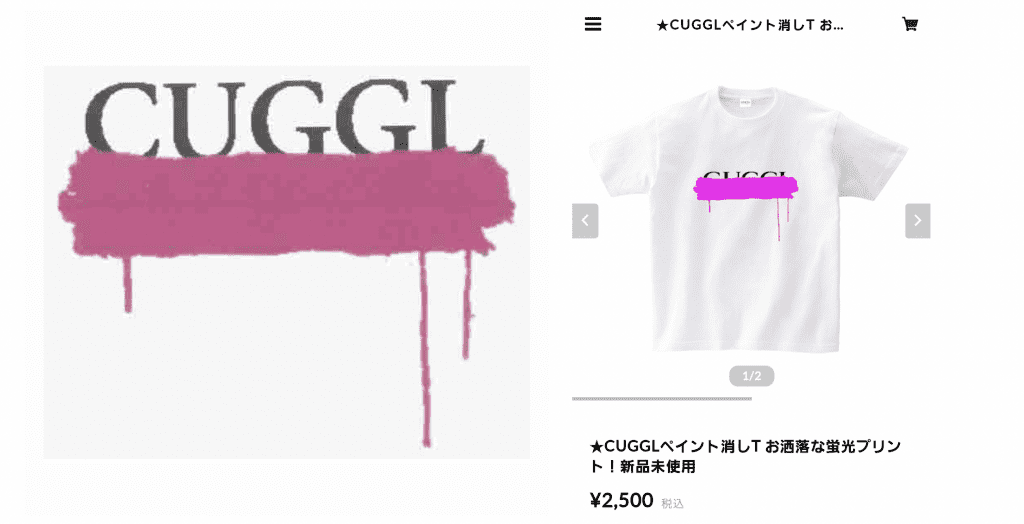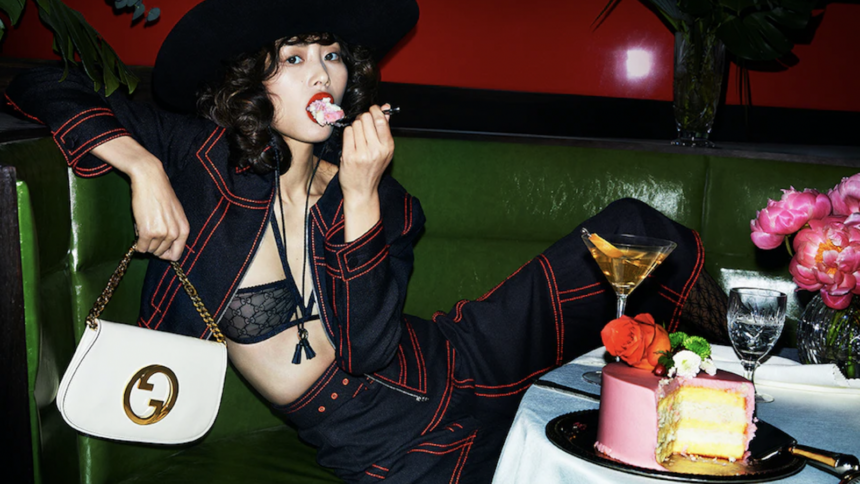[記事掲載日:2022年8月10日]
ヨーロッパを代表するファッション法律メディア『The Fashion Law』が、マークス英語ブログ「JAPAN TRADEMARK REVIEW」で紹介した「異議申立事件:GUCCI vs CUGGL」に関する記事を取り上げ、マークス代表・三上弁理士の解説が掲載されました。記事全文は、こちら。
Gucci has been handed a loss in a trademark fight in Japan, with the national trademark office refusing to block the registration of a mark that counsel for Gucci alleges will cause confusion among consumers. In a decision dated July 12, the Japan Patent Office (“JPO”) tossed out an opposition proceeding launched by Gucci over an application for registration for “CUGGL” for use on clothing and footwear, among other goods in Class 25. While the word mark on its own is not necessarily a dead-ringer for Gucci’s famous name, the Kering-owned brand argued that the unaffiliated filing party’s use of a pink line across a portion of the word “CUGGL” – which forms part of the mark – is being used to make the goods upon which the mark is used appear as though they originate from or are otherwise affiliated with Gucci.
On the heels of the filing of an application for the “CUGGL” mark back in October 2020, counsel for Gucci initiated an opposition proceeding with the JPO in July 2021, arguing that the mark should not be registered on the basis that it runs afoul of several provisions in the Trademark Act of Japan, namely, Articles 4(1)(vii), (xv), and (xix). Specifically, Gucci claimed that the lookalike mark is likely to “cause damage to public order or morality;” “cause confusion in connection with the goods or services pertaining to [another party’s] business;” and “is identical with, or similar to, a trademark which is well known among consumers in Japan or abroad as that indicating goods or services pertaining to a business of another person, [and is being] used for unfair purposes (referring to the purpose of gaining unfair profits, the purpose of causing damage to the other person, or any other unfair purposes).”

In particular, Osaka-based trademark attorney Masaki Mikami notes that counsel for GUCCI argued in its opposition that the filing party sought to register the mark with the “malicious intent to free-ride [on the] goodwill and reputation” of Gucci, which is indicated by its use of a pink painted line across the lower part of the “CUGGL” term to the extent consumers might view it as “GUCCI.” To make matters worse, Gucci pointed to the filing party’s use of the “CUGGL” mark in commerce, in which it “promotes t-shirts bearing the opposed mark with the most part of the term hidden,” (pictured above, right) and thereby, resembling the “GUCCI” word mark even more.
While the JPO’s Opposition Board recognized the “remarkable degree of popularity and reputation” of Gucci’s word mark, a critical element of the brand’s Articles 4(1)(xix) claim, which requires that the opposing party maintain rights in a trademark that is “well known among consumers in Japan or abroad,” it was not enough to warrant a block to the registration of the “CUGGL” mark. Mikami states that the Board sided with the filing party because it “did not find a resemblance between ‘GUCCI’ and ‘CUGGL’ from visual, phonetic, and conceptual points of view.” Due to the “low degree of similarity” between the two marks, the Opposition Board revealed that it had “no reason to believe that relevant consumers would misconceive [the] source of goods in question” as Gucci or as being connected with Gucci.
In light of the “low degree of similarity of the mark” and the low risk of likelihood of confusion, the Board stated that it could not find “a reasonable ground” to determine that the filing party had lodged its application in bad faith – or with “a malicious intention to free-ride [on the] goodwill and reputation of GUCCI,” and thus, agreed to register the “CUGGL” mark for use in Class 25.
The JPO’s refusal to block the registration of the “CUGGL” mark may not be the end of this clash, as it is not difficult to imagine Gucci filing a trademark infringement suit against the filing party in Japan (where Gucci maintains rights in – and an array of registrations for – its famous name for use on apparel, among other types of goods/services) for making/offering up products bearing a version of the “CUGGL” mark that is confusingly similar to its own word mark. After all, the t-shirts that Gucci cited in connection with its opposition, in which the pink line almost entirely obscures the “CUGGL” mark, arguably go much further than the mark at the heart of the newly-issued registration when it comes to potentially confusing consumers as to the source/nature of the shirts and in establishing bad faith on the part of the unaffiliated third party seller.
Japanese Courts can “sometimes [be] quite unpredictable,” according to Notarbartolo & Gervasi SpA attorney Raffaele Ranieri, who notes that a hypothetical case may not necessarily be as straightforward as it appears,”, particularly in light of there being “plenty of arguments for claiming that the marks are not similar.” In any event, should Gucci opt to file suit over the use of the “CUGGL” mark, he says that Gucci “should be successful, if not on [an] infringement claim, then at least regarding the passing off aspect, which is blatant here.”

